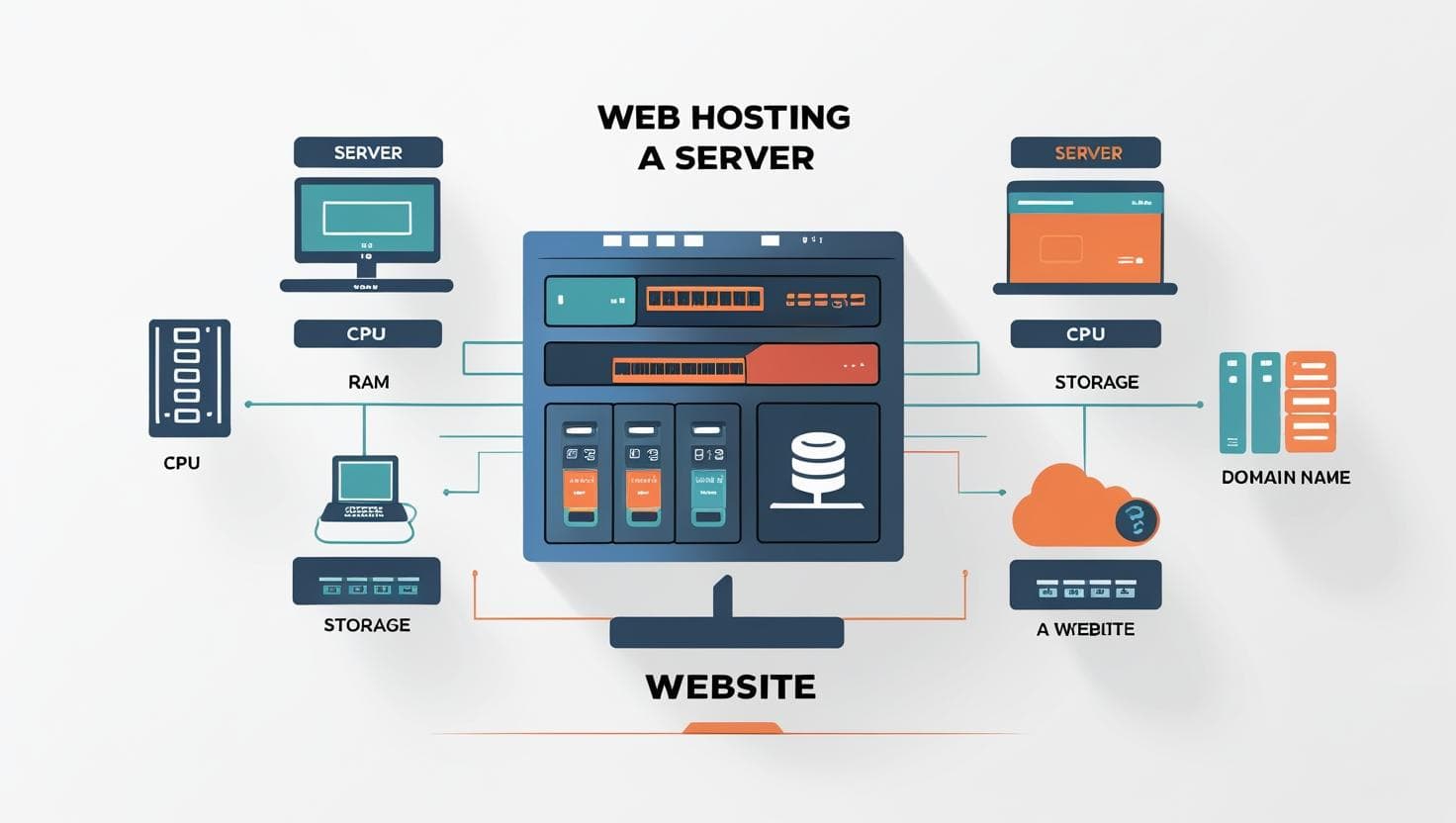Difference Between Hosting and Server: A Complete Guide for 2025

When it comes to launching a website or application, the terms hosting and server are often used interchangeably. However, they represent different concepts and play distinct roles in making your website accessible online.
If you’re looking to understand how hosting and servers work together to support your website’s performance, security, and scalability, this article is for you. In this comprehensive guide, we will break down the core differences between hosting and servers, and explain how they affect the way your website operates.
Whether you're a beginner, a business owner, or a digital marketer, understanding these terms is essential for managing a successful online presence and optimizing your website’s performance.
🔹 What Is Web Hosting?

At the most basic level, web hosting refers to a service that makes your website accessible to users on the internet. Web hosting providers rent out their servers to store your website’s files, images, content, and other resources, ensuring that they are available whenever someone types in your domain name.
- Shared Hosting: Multiple websites share the same server resources.
- VPS Hosting: Virtual private servers where you get more resources and control.
- Dedicated Hosting: Entire server dedicated to a single website.
- Cloud Hosting: Scalable hosting with resources spread across multiple servers.
🔹 What Is a Server?
A server is a physical or virtual machine that stores and serves data over the internet. It’s the core component of web hosting that holds your website’s files and delivers them to users when they request access to your website.
Servers are typically located in data centers and come in many shapes and sizes. They are designed to run 24/7, ensuring that your website is always available.
Key Differences Between Hosting and Server

1. Definition
- Hosting: A service to publish your website on the internet by renting space on a server.
- Server: A computer that stores and serves website data.
2. Purpose
- Hosting: Provides an environment and tools to run a website.
- Server: Physically or virtually stores and processes your website content.
3. Type of Resources
- Hosting: Offers a set amount of server resources like bandwidth and disk space.
- Server: Is the source of those resources.
4. Management and Control
- Hosting: Typically includes a control panel; less technical.
- Server: Requires more technical knowledge; direct access.
5. Scalability
- Hosting: Depends on the plan you choose.
- Server: Offers higher flexibility especially in cloud or VPS setups.
6. Location
- Hosting: Managed remotely, servers in global data centers.
- Server: Physical or virtual hardware in specific data centers.
7. Cost
- Hosting: Budget-friendly options available (shared hosting).
- Server: More expensive to set up and maintain.
8. Reliability and Performance
- Hosting: Varies by plan; shared hosting may face downtime.
- Server: More reliable, especially dedicated/cloud servers.
⚙️ How Hosting and Server Work Together

They are interconnected:
- Hosting providers use servers to host your website files.
- When users visit your site, the server delivers the content via hosting services.
🚀 Impact on SEO
- Page Speed: Fast servers = better rankings.
- Uptime: Reliable servers keep your site accessible.
- Server Location: Closer servers reduce latency and improve loading times.
🔄 Types of Hosting and Server Options
1. Shared Hosting
- Multiple sites on one server.
- Budget-friendly; best for small websites.
2. VPS Hosting
- Virtual partition of a server.
- More control and resources.
3. Dedicated Hosting
- Full server access.
- High performance and security.
4. Cloud Hosting
- Multiple servers work together.
- Highly scalable and reliable.
💡 Tips for Choosing the Right Hosting and Server
- Know Your Needs
- Compare Performance & Uptime
- Look for Scalability
- Check Customer Support
❓ FAQs
Q1: What is the difference between shared hosting and a dedicated server?
A1: Shared hosting shares server resources with other websites, while a dedicated server is entirely yours.
Q2: Can I switch my hosting provider without losing my website data?
A2: Yes, with proper backup and migration tools.
Q3: What is the role of a DNS server?
A3: It translates domain names into IP addresses to find the correct server.
Q4: Do I need a dedicated server for a small website?
A4: Not usually; shared or VPS hosting is sufficient.
🧠 Final Thoughts
Understanding the difference between hosting and server is vital for your website’s success. Hosting is the service; the server is the machine behind it. Together, they determine your site’s performance, uptime, and SEO success.
Still curious about how hosting and domain work together? Check out our complete guide on How Domain and Hosting Work Together to get a clear understanding of how your website becomes live on the internet.